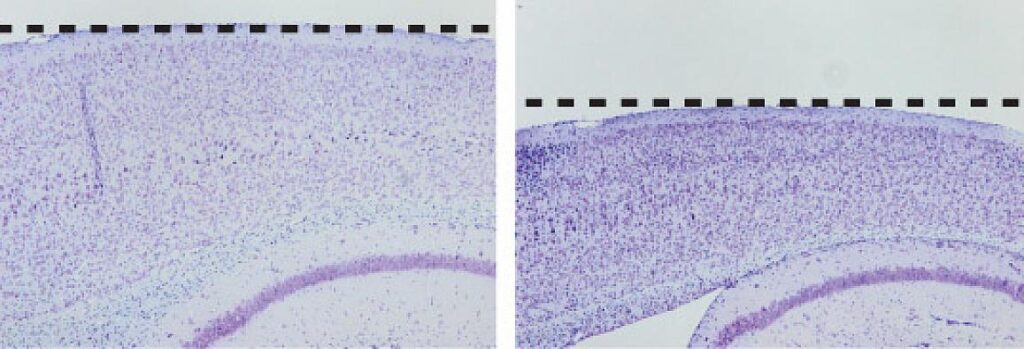Familial Alzheimer’s Disease Genetics
Unlocked DNA: Genetics and Hereditary Alzheimer’s
Alzheimer’s disease (AD) is a neurological condition that affects thought, behaviour, and memory. Although age is the primary risk factor, some people are more susceptible to the disease than others, most often as a result of heredity. This blog post explores the nuanced connection between genetics and Alzheimer’s disease in families.
Table of Contents

Comparing Sporadic and Familial Alzheimer’s Disease: What’s Different
Familial Alzheimer’s Disease Genetics
Alzheimer’s disease falls into two primary categories:
About 5% of instances of Alzheimer’s disease are familial (FAD), which has a strong hereditary component. A family’s increased chance of having the disease at a younger age (usually before 65) is caused by mutations in particular genes.
The most prevalent type of Alzheimer’s disease, accounting for 90–95% of cases, is sporadic. It typically appears after the age of 65 and is caused by a complicated interaction between environmental and genetic risk factors. Although genetics plays a part, the precise gene mutations that cause FAD are less well-defined.
Exposing the Genes Responsible: Mutations and Their Significance
Familial Alzheimer’s Disease Genetics
Certain gene mutations have been shown by researchers to be strongly linked to FAD. Three genes are affected by these mutations:
The gene known as Amyloid Precursor Protein (APP) codes for a protein that can fragment into smaller pieces, one of which is beta-amyloid. The aberrant synthesis of beta-amyloid, which results in the amyloid plaques that are indicative of Alzheimer’s disease, can be caused by mutations in APP.
Instructions for proteins involved in processing APP are provided by the genes presenilin 1 (PSEN1) and presenilin 2 (PSEN2). Increased synthesis of beta-amyloid can also result from mutations in PSEN1 and PSEN2.
Depending on the particular gene involved, FAD inheritance patterns can be either autosomal recessive or autosomal dominant. Merely obtaining a single copy of the defective gene from one’s parents can considerably elevate the likelihood of autosomal dominant familial AD. For autosomal recessive FAD to occur, a mutant copy of the gene must be passed down from both parents.
Beyond Fixed Genes: Adjusting Variables and Infiltration
Familial Alzheimer’s Disease Genetics
FAD gene mutations greatly increase risk, although they are not the only factor. The onset and course of disease may be influenced by additional hereditary variables as well as environmental factors. This is referred to as penetrance, which is the likelihood that a person carrying a certain genetic mutation will genuinely experience the corresponding disease. Variations exist in the penetrance of FAD genes, and additional genetic and environmental factors can impact the onset and age of the disease.
For instance, maintaining a nutritious diet, getting regular exercise, and taking care of other medical issues can all assist people with FAD gene mutations postpone the beginning or limit the disease’s course. On the other hand, bad habits could quicken decline and raise the risk.
The Significance of Genetic Testing in the Event of Familial Alzheimer’s
Familial Alzheimer’s Disease Genetics
Certain genes linked to FAD can be tested for genetically. But the choice to be tested is an individual one that has advantages and disadvantages. Benefits include learning about possible risks and being able to plan and prepare ahead of time. On the other hand, dread and anxiety might arise from testing positive for a mutation, and Alzheimer’s disease presently has no known treatment.
To fully comprehend the implications and make educated decisions, genetic counselling is essential both before and after testing.
Genetics’ Future Studies on Hereditary Alzheimer’s
Familial Alzheimer’s Disease Genetics
Future genetics research could help us comprehend and treat FAD. Researchers can create plans of action by examining how gene interactions combine with environmental factors to influence the development of disease.
- Estimating the beginning and course of a disease: This knowledge may enable early intervention and individualised treatment programmes.
- Creating precautionary actions: Comprehending the roles of genes could result in treatments that focus on the fundamental causes of FAD.
- Personalised medicine: Genetic testing may open the door to customised treatment plans based on a patient’s unique genetic composition.
In summary:
Familial Alzheimer’s Disease Genetics
Knowledge Strengthens the Battle Against Familial Alzheimer’s Disease Genetics is a major contributing factor to familial Alzheimer’s disease. Although mutations raise the risk, the disease is not always present and is influenced by other factors. Although genetic testing provides useful information, it’s a personal decision that needs to be carefully thought out. The intricacies of FAD are still being revealed by genetic research, which also bodes well for potential future treatments and preventative measures.


